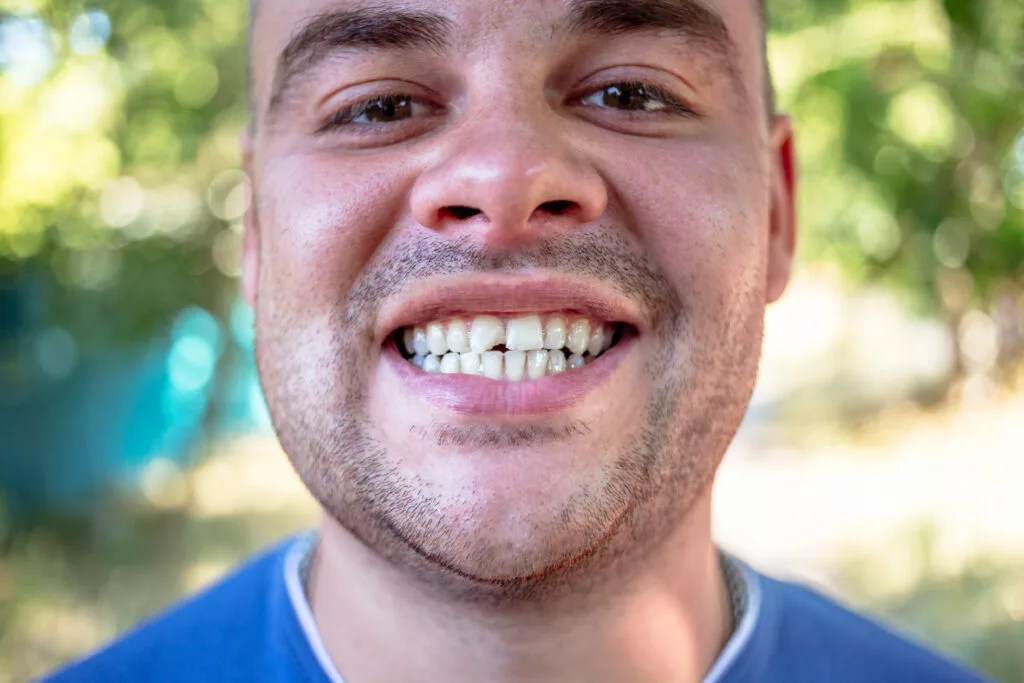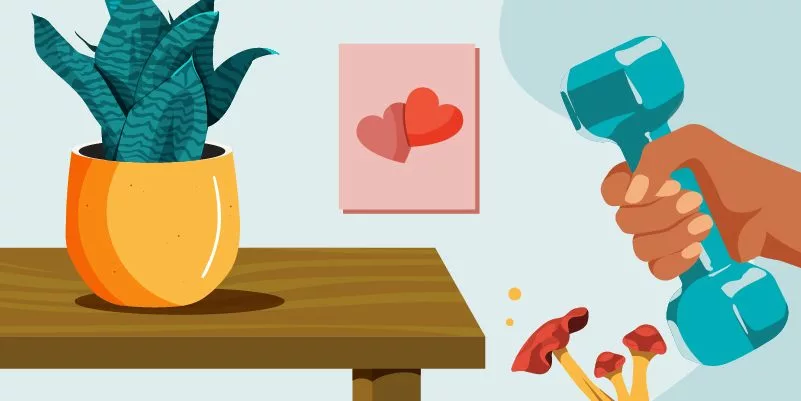Overview:
A fractured or chipped tooth is one of the most commonly encountered dental problems. According to a survey, 34 to 74% of people between the age of 30 to 50 years have one or more chipped teeth. This makes up a significant number. However, in most cases, chipping of teeth is not painful and can be successfully treated by your dentist.
What are the causes of chipped teeth?
There can be multiple reasons for the chipping of teeth. The most common one is direct trauma caused by a sudden blow or hit. Children and athletes are more likely to get their front teeth chipped.
Other reasons include the following:
- Biting down on hard objects like candy or nuts
- Falls or accidents
- Bruxism or night grinding
- Playing contact sports
What are the risk factors for tooth chipping?
Weakened teeth are more prone to chipping. The outer protective layer of the tooth crown is termed Enamel. Despite being one of the hardest body structures, it can be weakened in various conditions. These include:
- Caries or dental decay
- Consuming a diet high in sugary or acidic food
- Medical conditions like Gastroesophageal Reflux Disease (GERD)
What should you do if you have a chipped or broken tooth?
If you have accidentally chipped your tooth, there is nothing much that can be done at home, and a dental visit is mandatory. Meanwhile, if you have a slightly chipped tooth with no pain, you should immediately rinse your mouth to remove any debris and food particles.
Dental wax can be used to cover the sharp or jagged tooth edges that could otherwise traumatize the tongue. It is routinely available in the drug stored. You can also keep a dental repair kit in your first aid box. This kit usually contains temporary dental cement and dental wax.
When should you see a doctor?
If your tooth is chipped at the gum line or broken significantly and is painful, you should immediately schedule your emergency dental appointment. Meanwhile, here is what you can do:
- Rinse your mouth to remove blood or debris.
- Keep the broken tooth pieces in a sterile solution or milk so that your dentist can assess the injury more appropriately.
- Over-the-counter pain medications like Ibuprofen are advisable to alleviate the pain and inflammation.
- Avoid using the chipped tooth and take a soft diet until it is treated.
In rare scenarios, the tooth can be completely knocked out. In these cases, the tooth can be saved in reinserted back into the socket by your dentist. The prognosis is better if the tooth is placed back within the first 30 minutes after injury. The knocked-out tooth should be kept in saliva or milk.
Can I fix a Chipped tooth?

Your dentist can fix a chipped tooth. Various treatment options are available, ranging from simple bonding or fillings to veneers or crowns.
Treatment options depend on the severity and extent of tooth chipping. Moreover, individual patient factors are also kept in consideration.
The treatment protocol differs according to the type and extent of the tooth fracture. Your dentist might also prescribe a root canal treatment for the chipped tooth to relieve pain and avoid complications.
How is a chipped tooth diagnosed?
A visibly chipped tooth can be easily diagnosed with the examination of the oral cavity. Your dentist might also take a dental x-ray to confirm the extent of the damage.
In some cases, the cracks are not visible on examination. However, they can be diagnosed by biting down on cotton rolls. If you feel pain on opening the mouth, your tooth is likely cracked. Pain that occurs on releasing the pressure typically indicates a crack.
Your dentist can further confirm the diagnosis with transillumination.
What treatment options are available for a chipped tooth?
A variety of treatment options are available for chipped tooth repair. These include:
- Bonding
- Filling
- Veneers
- Crowns
In a few instances where the tooth cannot be saved, implants of the bridge can be considered.
1. Bonding
Dental bonding may be used to repair an uncomplicated and slightly chipped tooth. In this procedure, your dentist will etch the tooth surface to roughen the chipped area. A natural composite material is then applied over the tooth. Etching the surface is necessary to improve the strength of the bond.
2. Dental Filling
A dental filling, inlays, or onlays are the preferred treatment option for broken molar teeth.
Dental amalgam can be used as a filling material to repair chipped back teeth.
3. Dental Veneers
Dental veneers are thin tooth-colored shells placed on the front of the tooth surface. They are aesthetically pleasing and require the removal of minimal tooth structure.
They are usually made of porcelain. However, newer lithium disilicate or E-max veneers are also becoming popular.
They are esthetically superior to porcelain and have considerable strength. However, they are slightly more expensive than conventional porcelain or composite veneers. They are the treatment of choice, specifically in chipped front tooth repair.
4. Dental Crowns
Unlike dental veneer, dental crowns or caps cover the entire tooth surface. They are also made from porcelain, metal, or Lithium disilicate, also termed zirconia crowns.
Porcelain fused to metal crowns can be used to repair the back teeth. They have significant strength and can assist better in grinding and chewing.
Generally, dental crowns are used when the teeth are significantly broken. Firstly, a root canal procedure is performed on the broken tooth, followed by crown placement. Two or three visits might be needed depending on individual circumstances.In the meantime, a temporary crown can be placed over the tooth. Dental crowns prevent further tooth damage and sensitivity.
What can you do to avoid a chipped tooth?
The chipping of teeth can be prevented by a few simple tips and bits of advice that are listed below:
- Avoid chewing or biting on hard objects.
- Do not open the lids or packaging with your teeth.
- Always wear a mouth guard during sports.
- Night guards can be greatly helpful if you have a habit of clenching or grinding your teeth during sleep.
- Be careful while walking or running to avoid accidents.
Conclusion:
In summary, a chipped tooth is nothing to be worried about and can be treated with minimal intervention in most instances. However, if you are experiencing pain, you might have exposed your tooth nerve endings or pulp.
A dental visit is warranted in both cases to avoid any complications. Moreover, maintaining good oral hygiene is imperative for a good prognosis.

